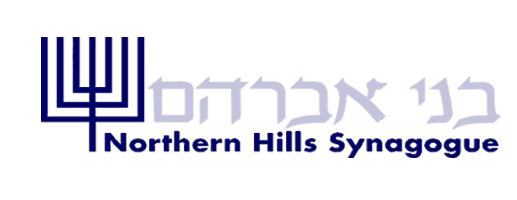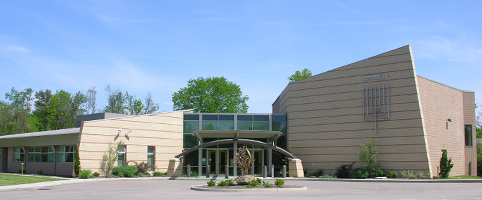Within this morning’s arresting Torah reading, one of the most arresting passages is the word “Hineni” (Here I am), which occurs several times. First, after God addresses Abraham, but, significantly, before God tells him what He wants, Abraham replies, “Hineni”.
The implication, which is especially poignant in the context, is that, whatever God has in mind for him, Abraham is ready. When Abraham and Isaac are making their way up Mt. Moriah, Isaac, sensing something strange about the situation, also addresses Abraham, and Abraham answers, Hinei b’ni” (Here I am, son).
That pair of statements captures the pathos of Abraham’s situation; he wants (needs) to be fully responsive both to God and to Isaac. The expression occurs once more in the portion. When the angel tells Abraham not to slaughter Isaac, he calls out, “Abraham! Abraham!” (twice), and Abraham again answers “Hineni”. I think that this second heavenly call to Abraham and Abraham’s response balance the first. Abraham is ready to respond to God, come what may. The heavenly voice is similar but not identical, showing that we are not going in circles, but that, rather, we have been through a crisis and its resolution.
The word “Hineni” occurs 178 times in the Tanakh. In many of the instances, it has a routine sense, “Here I am doing such and such”. In some other cases, though, the word expresses, as it does in today’s story of the Akedah, the openness and responsiveness of someone to an urgent call. For example, when God called to Moses from the burning bush, Moses answered “Hineni” When God first charged the prophet Samuel with his mission, Samuel answered, “Hineni”
This statement, which, in the cases I have mentioned, rings clearly in our consciousness, suggests several ideas to me, which I would like to share with you. They are a very mixed bag, but I think that that is all right. After all, at Jeremiah 23:26, we read, “Is not My word like a fire, says the Lord, and like a hammer that breaks rocks?” In the Midrash Pesikta Zutarta we read that Rabbi Ishmael said, “Just as a hammer sends off many sparks, so every word spoken by God has many meanings.”
The first idea which the expression “Hineni” suggests to me is rather homely, but still important. Woody Allen is often quoted as saying, "Eighty percent of success is just showing up." I get impatient at meetings or discussions at the synagogue in which people say that we should do this or that, without saying who is going to do it. These ideas are the unfunded mandates of synagogue life.
As you know, the congregation has a very small staff, and many, perhaps most, things here are done by volunteers. Suggestions of things to be done unaccompanied by suggestions about how they are to be done, or, even better, by offers to do them, are not very helpful. More generally, since the synagogue runs to such a large extent on volunteers, we need a large supply of volunteers.
While many people volunteer to do many things at the synagogue, there are also many things that don’t get done because nobody has volunteered to do it, and we don’t know who, out of the hundreds of synagogue members, might be likely to help out. The problem is especially acute when the task at hand has to be done immediately. The volunteer commitment cards which were distributed yesterday are intended to address that situation, and I hope that you have responded and will respond generously to that appeal.
The second level of resonance which the statement “Hineni” has for me is much more weighty. “Here I am” makes me think of “Here we are,” or, in Yiddish, “Mir zaynen do,” the refrain of the partisan song from World War II.
On the one hand, I cultivate a cosmopolitan persona, and I frequently deflate Jewish pretensions of uniqueness, in part by noting the similarities or parallels between aspects of Jewish life and culture and that of other groups. At the same time, my conception of Judaism, as I mentioned on Friday night, is unequivocally religious, and I have very ambivalent feelings towards so-called secular Jewish culture, whether in its American form – bagels and bacon – or in its Israeli form - restaurants in Tel Aviv that serve kuf-lamed-mem-resh-yud (calamari) The first time that I saw the word, I didn’t know what it was.
All of those things notwithstanding, I believe that the life of the Jewish people, such as it is, is of great significance, and that the Jewish people must endure. In my cosmopolitan mode, I would like to see cultural diversity endure, and so I may be interested in the preservation of Native American, Inuit, and Romany (formerly called Gypsy) cultures. So why not Jewish culture, too?
However, my concern for the Jewish people goes beyond that level. In theological terms, I believe that God established a special relationship with Knesset Yisrael, the idealized, metaphysical, representation of the Jewish people. The prophet Amos, who emphasized God’s interest in all people, also said, in God’s name, “You alone have I singled out of all the families of the earth”
Leaving theology aside and speaking informally, I care about Jews. I am glad when Jews do good things and when Jews do well, I am upset when Jews do bad things, and I am upset when Jews are in trouble. I want to say to all the mamzerim who are out to get us – Hamas, Hizbollah, Ahmedinajad, Chavez, and the rest – “Mir zaynen do” - we are here, and we are not going away.
The third level association which the expression “Hineni” has for me is, once again, totally different. It has to do with personal presence. Once, thinking about my profession, I reached the formula that personal presence is more important than any things that a rabbi may say, but that, if one’s personal presence is not informed by Torah, then there is no point to being a rabbi.
Today, I want to focus on the first half of that formula, which applies to all of us, not just to rabbis. Personal presence is tremendously important. Rabbi Harold Kushner, in his famous book When Bad Things Happen to Good People, wrote about Job’s comforters, the friends who came to Job when he suffered terrible calamities. Rabbi Kushner criticized those friends for trying to explain his misfortunes in conventional terms, in terms of things that he, Job, had done. However, he wrote, they did two good things: they came to sit with Job, and they listened to him speak.
When we deal with other people, whether they are in distress or not, we must make our presence felt, we must listen, actively and sensitively, picking up the emotional overtones of the situation as well as the surface features, and react with empathy. As I have learned from Rabbi Uzi Weingarten, giving advice, having an answer, if it has a place at all, comes later in the process. Further, I want to emphasize that, while there are techniques, which we can learn from books, in courses, or on the internet, for active listening and the like, the real need is not for technique but for a way of being.
Now, all of this is hard to do, and I hope that you don’t think that I am claiming that I always do it. Sometimes I do, and sometimes I don’t. In general, when I speak about desirable personal qualities, I am preaching to myself as much as to anyone. One of the most egregious breaches of personal presence and attention is consulting a PDA while talking or listening to someone else, and I have been known to do that. If we want to make a small New Year’s resolution for 5770, let’s put aside our Palms and Blackberrys when we are with other people. It will be a small step in a very good direction.
We are called to, we are addressed, every day. I chose three examples of ways in which we are addressed by life, but they are only those which first came to my mind. The people of Darfur call . . . . The American people, grappling with the issue of national health care policy, call . . . . The Jewish people calls . . . . . The congregation asks for your help and support . . . . Our friends, neighbors, and family members call to us . . . . May we clearly answer, “Here I am”.

